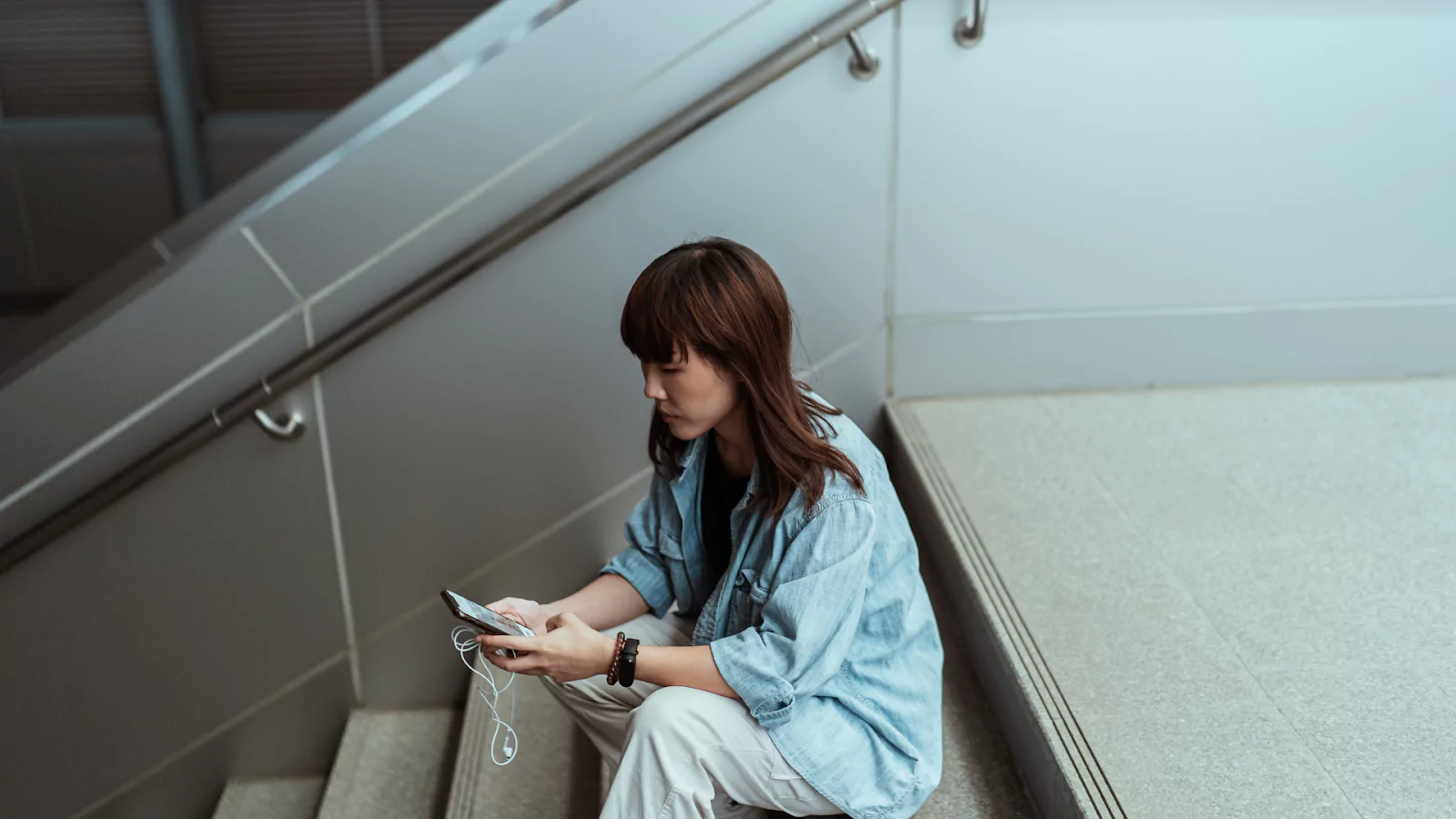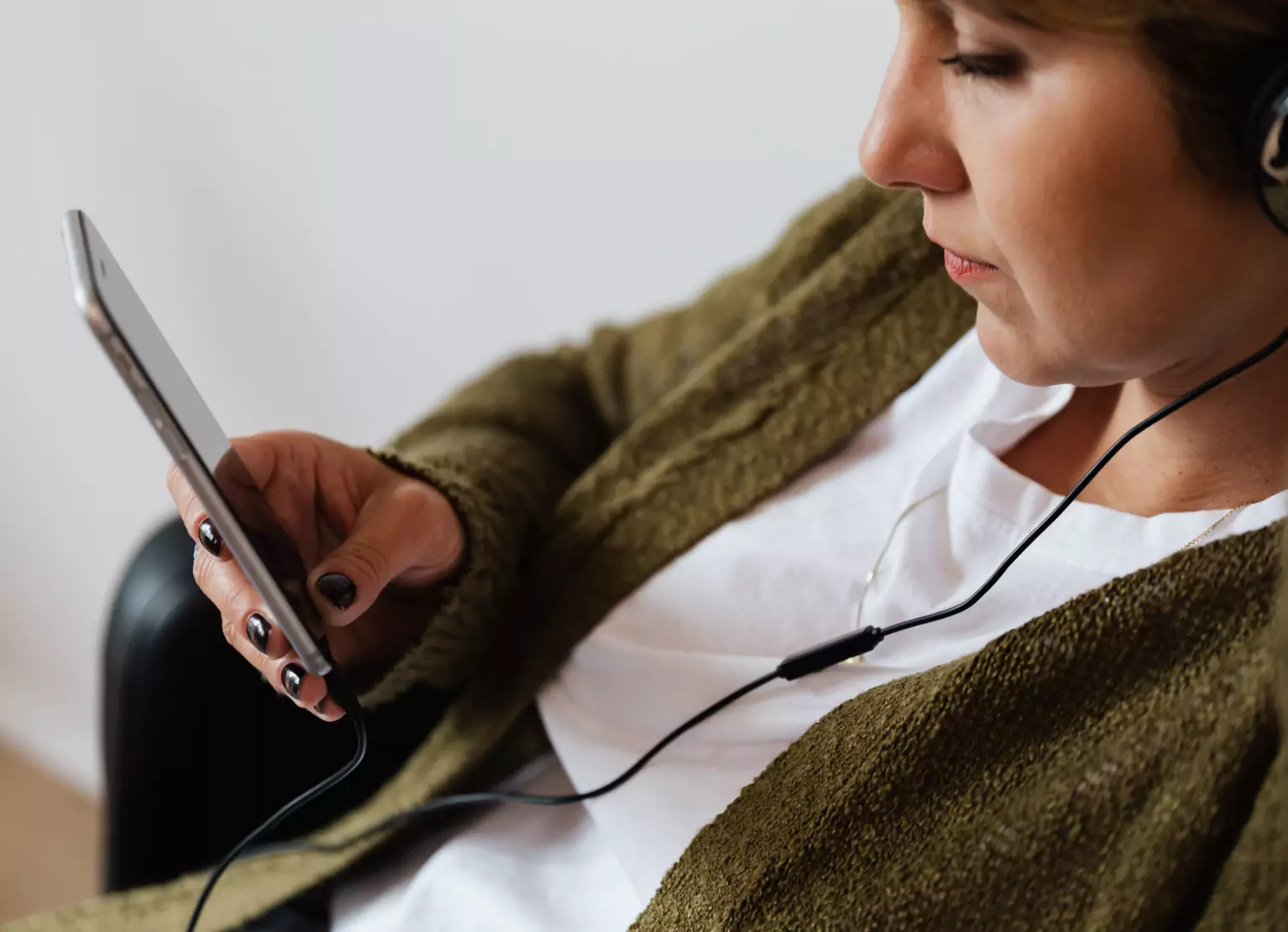What A Digital Detox Can Do for Your Mental Health

Key Takeaways
Do you spend all your free time scrolling through social media? Does the idea of spending time away from your phone give you a little anxiety or FOMO? If you can’t remember the last time you went offline, you may need a digital detox.
In the age of social media, it’s not uncommon for the average person to spend upwards of five hours a day on their phone. Technology has become a central part of our lives, and while this has undoubtedly brought many benefits, it can also sometimes come with a cost.
According to a recent study published in the journal Cyberpsychology, Behavior, and Social Networking, taking a week off social media improved wellbeing, anxiety, and depression among those surveyed. It shows that there may be some positives to taking time off now and then to recharge.
But is being constantly connected as bad as it seems? Should you deactivate your social media accounts and stop all social media usage, or just take a break once in a while? Let’s take a deeper look at what the research shows and how a digital detox might benefit your mental health.
Is Social Media Addictive?

Yes, and no. The answer to whether social media addiction is real or not lies somewhere in between. Technology, phones, and the internet are not inherently bad, but it’s no secret that they can be incredibly addictive.
As many as 90 percent of young adults in the U.S. use at least one social media platform daily. This means that the time typically spent online is relatively high and likely only increasing.
Things such as Instagram likes, story views, and notifications are known to trigger dopamine releases in the brain. This never-ending cycle of keeping dopamine neurons active and firing can have a similar effect in the brain to things like gambling.
If you’ve ever felt that little internal ping of excitement as you feel your phone vibrate with an incoming text, you’ll be familiar with how addictive your phone can be.
Social media platforms have also led to alarming new phenomena such as “Nomophobia,” or the anxiety you might feel after misplacing your phone and feeling disconnected from the internet, reportedly experienced by over 74 percent of people.
One in four adolescents can suffer from problematic cell phone use, which is connected to poor sleep quality, anxiety, and depression, demonstrating that social media’s addictive effects are concerning from a mental health standpoint.
So while simply being on a social media site isn’t addictive in itself, your social media habits can lead to a dependency that’s hard to break.
The Downsides of Social Media

Despite the benefits of increased connection, relationship building, and the ability to stay in touch with friends and family, social media’s addictive nature has negatively affected our society since its inception.
Depression and Anxiety
Many studies have shown a positive correlation between highly active social media users and depression rates, finding that users often felt less life satisfaction overall.
While many other factors can often influence depression, anxiety, and other mental health issues, research has often concluded that there is often an association between social media and mental health issues like depression and anxiety, especially in adolescents.
In the aftermath of the Covid-19 pandemic, “doomscrolling” has also been thought to contribute to increased depression and anxiety. Social media users are constantly subjected to negative news in easily consumable formats. This sort of news, which can be found anywhere from TikTok to online news sites, can also lead to excessive use of these platforms and consequential psychological distress.
Body Dysmorphia
Some medical professionals attribute an increase in cases of body dysmorphia, which is experienced by as many as 10 million Americans, to unachievable beauty standards promoted on platforms such as Instagram and Snapchat.
A phenomenon known as “Snapchat Dysmorphia,” which originated in 2018, became a cause for concern after researchers found potential links between social media filters and a rise in plastic surgery rates.
The widespread use of selfies online, both by brands and individuals, has similarly been linked to increased anxiety, insecurity, and body dysmorphia resulting from social media. As a result, campaigns seeking to promote body positivity and unfiltered photos are beginning to see a rise in popularity.
FOMO
Social media may also contribute to the sensation of a fear of missing out, or “FOMO,” which has been found in studies to foster a deeper sense of social inferiority, loneliness, or even rage when someone finds out they were not invited to a gathering.
While this may sound all too familiar, researchers consider FOMO a form of problematic attachment to social media. It can potentially lead to other issues, such as increased anxiety and emotional tension.
There are Positives to Social Media Use

Social media can’t be all bad, right? There are countless ways that phones, computers, and social media have improved our lives.
- From allowing us to keep in touch with friends and family to learning about different cultures and exploring other parts of the world, this technology can positively affect mental health as long as you don’t form an unhealthy emotional attachment.
- In some studies, routine social media use has been observed to have positively affected social wellbeing. Social media can also be a great way to educate yourself about world issues and health information. Of course, it’s crucial to ensure that your sources of information are trustworthy.
- Some medical professionals have even found social media to be one of the most beneficial means of communicating important health information with patients.
How to Start a Social Media Detox

Whether you feel that your experience with phones, screens, and social media is positive or negative, an online detox can undoubtedly be refreshing from time to time.
Depending on your relationship with your favorite devices and platforms, you may want to try to take some time away from social media. Or, consider switching off entirely and spending time away from your phone and laptop altogether.
If you want to give digital detoxing a go without fully cutting yourself off from the world, here are a few things to try out:
1) Ditch Your Phone
One alarming study found that over 70 percent of respondents reported using their phones every night before bed, which was correlated with poor sleep quality and mood dysfunction.
Adequate rest is essential to maintaining overall health, and getting poor sleep can even have adverse effects on things like blood sugar.
Making the conscious choice to turn off your phone at a certain time in the evening and disconnect with your loved ones can be an easy and practical way to get better sleep and feel better.
2) Sleep without Technology

When we say sleep without technology, we don’t just mean stop using your phone before bedtime. We mean no phones, laptops, or devices in the bedroom! If you read on a device like an iPad or a Kindle in bed, consider locking it away in a drawer or putting it in another room before you turn in for the night.
Choosing not to use your phone in the bedroom can help protect your sleep quality, linked to reduced depression rates.
Of course, if you need to stay connected online in your line of work, limiting your nighttime use of phones and social media platforms can be a more practical option while also helping support your mental health.
3) Use Screen Time Settings
Many smartphones have the option to let you limit the amount of time you can spend on selected apps. If you’re hesitant to fully disconnect from certain platforms, limiting the time you allow yourself to use these apps can be a great way to start.
Because social media can have adverse effects on things like procrastination, forcing yourself to switch to other projects may help you focus and work on other projects when you reach your daily limit.
Limiting social media use has also been found to decrease feelings of FOMO, loneliness, and even depression.
4) Delete Your Social Media Apps

Don’t worry, we’re not telling you to go offline forever. But if limiting your time on social media sites isn’t enough to help you disconnect, you can try deleting your apps for a week.
In a study published this year, taking a week-long break from online platforms was linked to improvements in depression and anxiety.
Some studies suggest that social media leads to a rise in behavioral and psychological problems. If you struggle with feeling dependent on these platforms, taking some time to remove yourself fully might help you break the cycle.
5) Swap Your Phone for a Book
Put down your phone, and try reading a book, newspaper, or magazine instead. With so many apps available to distract you, it can sometimes be hard to focus on reading an e-book or a newspaper article without getting the urge to switch to social media sites.
Social media has been found to hinder our ability to focus, and one small way to combat this is to opt for physical books or newspapers to get your reading in without getting distracted by your phone.
How a Social Media Detox Connects to Blood Glucose Levels

While taking a break from social media and screens, in general, can be beneficial for psychological and behavioral factors, it may indirectly also help curb your glucose spikes.
- Using your phone before bed, even for just 30 minutes a night, is associated with poor sleep. Research has also indicated that a lack of sleep can negatively affect your glucose levels, so removing a trigger of these things or taking steps to reduce their impact can be a great way to keep your health in check.
- Stress is another factor that can poorly influence your blood sugar and lead to undesirable spikes. Practicing mindfulness and making an effort to think positively despite stress and anxiety generated by social media use can help combat the negative effects these platforms can have on mental health.
- Prioritizing your mental health by taking conscious steps to disconnect from social media triggers, practicing mindfulness, and getting quality sleep each night can support your overall health, help you keep your glucose levels regulated, and keep you feeling better overall.
Find the right Nutrisense programto turn insight into progress.
Go Beyond Glucose Data with Nutrisense
Your glucose can significantly impact how your body feels and functions. That’s why stable levels are an important factor in supporting overall wellbeing. But viewing glucose isn't enough. Nutrisense, you’ll be able to learn how to use your body's data to make informed lifestyle choices that support healthy living.
One-to-one coaching
Sign up to access insurance-covered video calls to work with a glucose expert: a personal registered dietitian or certified nutritionist who will help tailor your lifestyle and diet to your goals.
Monitor and measure what matters
With the Nutrisense CGM Program, you can monitor your glucose with health tech like glucose biosensors and continuous glucose monitor (CGM)s, and analyze the trends over time with the Nutrisense App. This will help you make the most informed choices about the foods you consume and their impact on your health.
Find your best fit
Ready to take the first step? Start with our quiz to find the right Nutrisense program to help you take control.

Carlee's training at Western Illinois University and an internship at the Memphis VA Hospital lead her to a career in outpatient counseling and bariatric nutrition therapy. In these positions, Carlee realized many of the disease states (upwards of 80%!) her patients experienced were actually preventable. She knew she had to dig deeper into preventative health and has since been passionate about helping people translate this complex glucose data into actionable changes anyone can implement into their everyday lives.




